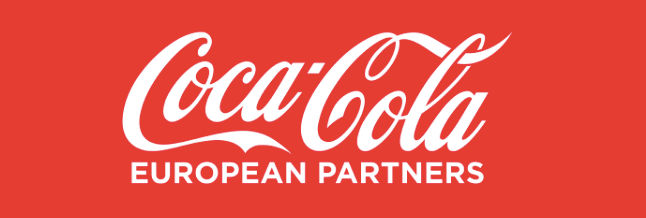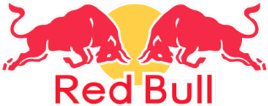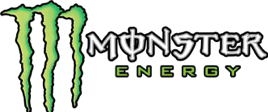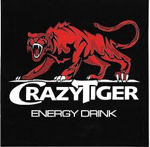Summary
Since 2020, the energy drinks market has continued to demonstrate robust growth, propelled by increasing consumer demand for immediate energy boosts and a shift towards healthier options like sugar-free products. As of 2021, the market was valued at $86 billion, with projections estimating it will soar to $177 billion by 2030, translating to a CAGR of 8.3%. North America held the largest market share in 2021, at 30%, but the Asia-Pacific region is predicted to experience the fastest growth up to 2030. In France, the consumption rate of 1.3 liters per capita was considered average, but the market is expanding rapidly, outpacing even the global market.
Despite this sharp ascent, the energy drink segment still represents a modest 2.5% of the non-alcoholic beverage market in France as of 2021. Energy drink prices remain high, with a liter costing nearly three times more than the average soft drink, testifying to the premiumization trend in the sector.
Key Trends in the French Energy Drink Market
The energy drink market in France has shown a significant upward trajectory, indicating a robust appetite for these stimulating beverages among French consumers. Although the overall consumption per capita stands at a moderate level, the market has expanded, pointing towards a rapidly growing segment within the soft drinks sector. A remarkable trend in the French market is the dominance of major brands such as Red Bull and Monster. Together, these giants have a firm grip on the market, propelled by aggressive marketing strategies and wide recognition among the younger demographic. Notably, Red Bull experienced a staggering 60% increase in its market value over three years, reaching nearly 9 billion euros in 2021. Additionally, the brand impressively sold between 10 and 15 billion cans in 2022 alone.
The French market for energy drinks is relatively small when compared to other non-alcoholic beverages, accounting for just around 2.5% of total soft drink sales in 2021. However, it's significant to note that energy drinks command a much higher price per liter than the average soft drink, with a ratio of nearly 3 to 1, highlighting the premium nature of these products. Consumption patterns in France depict that energy drinks primarily cater to a young audience, with a significant decrease in familiarity among the older generations. This aligns with the broader global trend where energy drinks are popular among individuals under the age of 35.
Interestingly, while brands like Red Bull and Monster are well recognized, others such as Crazy Tiger and Rockstar maintain a lower profile across all age groups. Despite the youth-skewed profile, it is observed that less than a third of the buyers come from modest households, potentially due to the relatively high prices of energy drinks compared to alternative sources of caffeine such as coffee. The market also reveals that frequent consumption of energy drinks is on a downslide, whereas moderate consumption maintains stability.
Another key insight is that energy drinks are largely bought and consumed on immediate demand, which explains the limited sales through online channels. Hypermarkets and supermarkets remain the primary distribution centers, covering around 60% of total energy drink sales. In conclusion, the French market for energy drinks epitomizes a growing and dynamic sector with prominent players leading the charge through strong branding and marketing. The young French consumers' affinity for energy drinks, coupled with the premium pricing strategy adopted by the leading brands, suggests that while the market is compact, it is also highly.
Dominant Forces in the Energy Drinks Arena: Red Bull and Monster Lead the Charge
The energy drink market is a dynamic and fiercely competitive landscape where only a select few have soared to the top. Within this realm of revitalizing beverages, two giants have firmly positioned themselves as the go-to brands for an energized population—Red Bull and Monster.
- Red Bull: The Pioneer Soaring High Red Bull sits comfortably on the throne of energy drinks. The brand doesn't just sell a beverage; it sells a narrative of extreme sports, vigor, and vitality, perfectly encapsulated by its iconic slogan "Red Bull gives you wings." A major differentiator for Red Bull has been its commitment to engaging its audience. From sponsoring high-octane Formula 1 racing to captivating the world with record-breaking skydiving stunts, Red Bull has created an image that resonates with thrill-seekers and the youth. Emphasizing these values, Red Bull uniquely blends caffeine, glucuronolactone, and other key ingredients to not only promise but also enable heightened alertness and performance.
- Monster: The Formidable Challenger - Monster Energy has quickly become synonymous with its bold, black can adorned with a vibrant, claw-marked "M." What Monster brings to the table is diversity. It caters to a broad palette by churning out an array of flavors that offer more than just a caffeine kick. They're an embodiment of a lifestyle that's a little loud, highly energetic, and unapologetically bold. Like its rival, Monster deeply ingrains itself in the fabric of extreme sports and music festivals, curating a brand image that's just as potent as the drink itself.
Crazy Tiger and Rockstar: Other Contenders in the Mix
While Red Bull and Monster are the clear market leaders, they share the space with other worthy contenders like Crazy Tiger and Rockstar. These brands, though lesser-known, have carved their niche within the market. Although they may not boast the same breadth of recognition, they serve as a testament to the diversity and innovativeness of the energy drink domain.
In the world of energy drinks, the competition may be fierce, but the dominance of Red Bull and Monster is a clear indicator of what it takes to succeed: a strong, distinctive brand identity, a robust, varied product line, and the power to engage with consumers on a level that goes beyond just satisfying thirst.
to understand this market
Detailed content
 Inforamtion
Inforamtion
- Number of pages : 30 pages
- Format : Digital and PDF versions
- Last update : 04/05/2023
 Summary and extracts
Summary and extracts
1 Market summary
1.1 Definition and introduction
Energy drinks are an important part of the "soft drinks" sub-category .according to the French Ministry of Health, energy drinks are "beverages containing high doses of caffeine-containing substances such as guarana, taurine, ginseng and others. These drinks are sold with the aim of stimulating physical and intellectual effort. [ Ministry of Health and Solidarity]
In this study, energy drinks are to be distinguished from drinks that are designed to meet the specific needs of athletes before, during and after exercise, and which are enriched with minerals and vitamins.the global market for energy drinks is growing rapidly, and is set to continue expanding over the coming years, with Asia-Pacific leading the way.
The domestic market is expected to grow faster than the global market: between 2016 and 2021, market size increased at an annual rate of 9.16%[Report Linker]. Nevertheless, the energy drink segment remains small compared to other similar beverages, and consumption in France remains modest. Like the global market, France is dominated by Red Bull and Monster. Although the market has moved towards greater segmentation in terms of companies and products, private labels are struggling to keep up with the industry giants, outstripped mainly by the massive marketing budgets used by Red Bull and Monster.
The marketing of energy drinks in France has been the subject of much public health debate, culminating in the introduction of a supervised sales system.
1.2 A growing global market
Energy drinks market size World, ****-****, in billions of dollars CAGR: +*.*% Source: grandviewresearch The energy drinks market was valued at $** billion in ****, and is expected to reach $*** billion by ****. This equates to a CAGR of *.*% between **** and ****. There are several reasons for this growth: firstly, energy drinks offer an immediate burst ...
1.3 Strong growth in the French market
Energy drinks market size World. ****-*****.in million dollars CAGR: +*.**% Source: ****
In France, in ****, *.* liters of energy drinks were consumed per capita. Compared with other countries, this is neither high nor low, but rather average consumption. Nevertheless, when measured in aggregate value terms, the market is small compared with the UK ...
1.4 A concentrated market in the hands of a small number of players
The energy drink market is highly concentrated, with the top three brands accounting for **.*% of total sales in France in ****. Red Bull is the market leader with over half of the energy drink market share, followed by Monster with **.*%. Private labels and other brands have lost market share to these giants. ...
2 Demand analysis
2.1 The soft drinks market
An overview of the soft drinks market Sales in the soft drinks market France, ****-****, in € billions Source : LSA Conso, LSA Conso, LSA Conso, LSA Conso, LSA Conso Over the past * years, sales of the BRSA (***) market have grown steadily, reaching *.** billion euros in ****. Overall, with the exception of **** and ****, sales ...
2.2 The place of energy drinks among BRSAs
Retail sales volume of non-alcoholic beverages by category France, ****, in millions of liters Source: ****
In ****, sales of enegetic beverages in France totaled ** million liters. This represents just *.*% of the total market considered in this chart, which is dominated by Coca-Cola. This confirms the growth potential of this market.
Overall, according to ...
2.3 Demand trends
Interest in energy drinks is non-cyclical
Google Trends index of "energy drink" searches France, ****-****, in Google Trends index Source: ****
The graph below represents the proportion of searches for a given keyword in a specific region and for a specific period, in relation to the time when the rate of use ...
2.4 The impact of Covid-19 on the industry
There is no indication that the energy drinks sector as a whole will be particularly affected by COVID-** over the long term. Beverages remain non-cyclical and demand is fairly stable.
Successive confinements have meant that people spend less time outdoors, and therefore consume fewer activity-related energy drinks. In addition, brand exposure ...
3 Market structure
3.1 Overview of market structure
Combining ingredients
Energy drinks are made up of various ingredients such as caffeine, taurine, sugar, guarana, B vitamins and herbs. The amount of each ingredient varies by brand, but generally energy drinks contain between ** and *** milligrams of caffeine, between *,*** and *,*** milligrams of taurine, between ** and ** grams of sugar and between ** and ...
3.2 Production
Production overview
Depending on the product and the company, the distribution network differs accordingly. We can distinguish three different profiles of players in the production (***) of energy drinks:
Specialists in industrial subcontracting , who generate most of their revenues by producing for third parties, such as Coca Cola European Partners France (***); Private ...
3.3 Distribution
Overview
Top five distribution channels for energy drinks France, ****, in Source: ****
Hypermarkets and supermarkets are the most common distribution channels for energy drinks in France, accounting for around **% of sales. E-commerce remains a very limited channel, with only *% of sales made online. This is partly due to the fact that energy ...
4 Offer analysis
4.1 Products
Product components
According to caffeinformer, the five most common ingredients in energy drinks (***) are vitamin B**, vitamin B*, caffeine, vitamin B* and taurine.
Formats range from ** cl cans (***) to * l bottles. In between these two styles, many brands innovate with hybrid formats. Energy drinks derive their stimulating effect mainly from the ...
4.2 Price analysis
You will find below an overview of the prices and descriptions of the following * brands: Red Bull, Monster, Rockstar, Crazy Tiger.
Red Bull
Red Bull, created in ****, is recognized as the best-known energy drink brand on the market, and the leader in terms of both value and volume. The drink is ...
4.3 Supply trends
The giants enter the game
Indirectly, Coca Cola has been present in the French energy drink market for some time through its **.*% minority stake in Monster Energy. However, in ****, Coca Cola entered the French energy drink market with the aim of reaping market share from Red Bull more aggressively, launching two ...
5 Rules and regulations
5.1 More flexible but still vigilant regulations
In general, energy drinks sold in France are subject to EU regulations, which lay down specific provisions for the labeling of energy drinks, implemented in Regulation (***) No. ****/**** on the provision of food information to consumers. Under this regulation, energy drinks must be labelled with the words " High caffeine content. Not recommended ...
5.2 Health issues remain a grey area
The French government has commissioned several reports on the health effects of energy drinks. A major report by the Institut de Veille Sanitaire (***) in ****, based on data collected from **** to ****, showed that over-consumption of energy drinks could present risks of caffeine intoxication. However, it did not lead to any changes in ...
5.3 World customs nomenclature and harmonized system
The Harmonized System is an international nomenclature for product classification. It enables participating countries to classify traded goods on a common basis for customs purposes. At international level, the Harmonized System (***) for the classification of goods is a six-digit code system. [***]
The HS comprises some *,*** item/product descriptions, which appear as ...
6 Positioning the players
6.1 Segmentation
 List of charts
List of charts
- Energy drinks market size
- Red Bull worldwide sales
- Energy drinks market size
- Volume and retail sales of non-alcoholic beverages by category
- Number of energy drink consumers
All our studies are available online in PDF format
Take a look at an example of our research on another market!
Latest news
Companies quoted in this study
This study contains a complete overview of the companies in the market, with the latest figures and news for each company. :
 Choosing this study means :
Choosing this study means :
Access to more than 35 hours of work
Our studies are the result of over 35 hours of research and analysis. Using our studies allows you to devote more time and added value to your projects.
Benefit from 6 years' experience and over 1,500 industry reports already produced
Our expertise enables us to produce comprehensive studies in all sectors, including niche and emerging markets.
Our know-how and methodology enable us to produce reports that offer unique value for money.
Access to several thousand articles and paid-for data
Businesscoot has access to all the paid economic press as well as exclusive databases to carry out its market research (over 30,000 articles and private sources).
To enhance our research, our analysts also use web indicators (semrush, trends, etc.) to identify market trends and company strategies. (Consult our paying sources)
Guaranteed support after your purchase
A team dedicated to after-sales service, to guarantee you a high level of satisfaction. +44 238 097 0676
A digital format designed for our users
Not only do you have access to a PDF, but also to a digital version designed for our customers. This version gives you access to sources, data in Excel format and graphics. The content of the study can therefore be easily retrieved and adapted for your specific needs.
 Our offers :
Our offers :
the energy drinks market | France
- What are the figures on the size and growth of the market?
- What is driving the growth of the market and its evolution?
- What is the positioning of companies in the value chain?
- Data from several dozen databases
Pack 5 études (-15%) France
- 5 études au prix de 75,6€HT par étude à choisir parmi nos 800 titres sur le catalogue France pendant 12 mois
- Conservez -15% sur les études supplémentaires achetées
- Choisissez le remboursement des crédits non consommés au terme des 12 mois (durée du pack)
Consultez les conditions du pack et de remboursement des crédits non consommés.





 Coca-Cola: solid health in Q4 thanks to higher prices | Coca-Cola reports solid Q4 results. - 14/02/2023
Coca-Cola: solid health in Q4 thanks to higher prices | Coca-Cola reports solid Q4 results. - 14/02/2023
 Pepsico cuts its workforce in France - 09/12/2022
Pepsico cuts its workforce in France - 09/12/2022
















